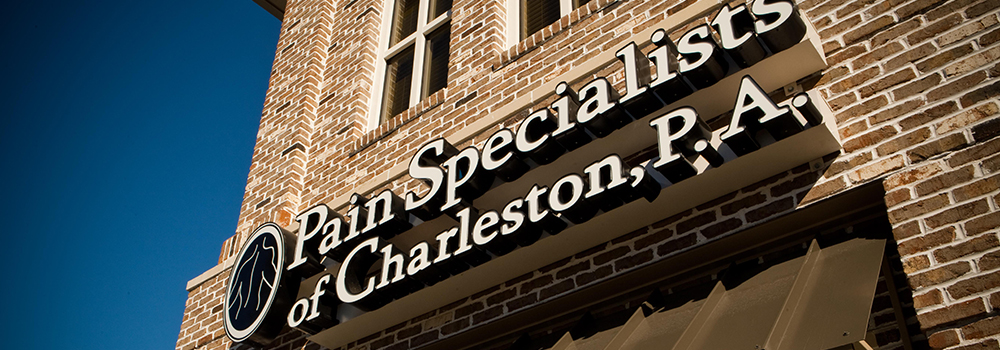You’ve likely heard the phrase “my lips are sealed” when it comes to keeping secrets – unfortunately for those suffering from TMJ, keeping your lips sealed is not so much a choice as it is a painful demand from your jaw.
Temporomandibular joint (TMJ) disorder is the second most common cause of chronic pain, leaving those unlucky enough to experience it with difficulty chewing, speaking, and even laughing.
But what happens when signs of TMJ disorder leave you with a pounding headache? Are they related or is it just a coincidence?
Keep reading to learn more about TMJ headaches and treatment options from those who know how to help you with chronic pain – without surgery or habit-forming medications!

Understanding TMJ
Understanding the relationship between TMJ disorder and headaches starts with understanding our joints.
What is the TMJ?
Every person has two temporomandibular joints on either side of the head. These joints act as a hinge, connecting your jawbone to your skull, and are responsible for many of the jaw movements we take for granted.
TMJ disorder can occur due to several factors, including:
- Misaligned jaw
- Arthritis in the jaw joint
- Jaw injury or trauma
- Overuse injury
- Muscle knots
- Genetic predisposition
Along with the above causes, those who have a habit of clenching or grinding their teeth are at risk of causing inflammation or pain to the jaw joint, leading to TMJ disorder.
Symptoms and Signs of TMJ Disorder
If you suspect you may be experiencing symptoms of TMJ disorder, you may have one or more of the following symptoms:
- Pain or tenderness in your jaw
- Pain in one or both of the TMJs
- Aching pain in or around your ear
- Difficulty or pain while chewing
- Facial pain
- A “clicking” noise from the jaw
- Restricted movement or locking of the jaw
Connection Between Your Jaw Pain and Headache (Is There One?)
TMJ disorder can explain your locked jaw or that odd clicking sound, but is it possible it’s responsible for your head pain too?
The answer is YES!
One study found that TMJ headaches were misdiagnosed as tension headaches in a resounding 31% of patients included in the research. A TMJ migraine is easy to confuse with a tension headache because the jaw joint shares muscles with the head.
One of the primary muscles responsible for moving your jaw is a fan-shaped muscle covering each side of the head. When these muscles become tense or damaged due to issues with the temporomandibular joints, they place great stress on your head.
The result? A pounding and painful headache.
How to Tell the Difference Between a TMJ Migraine and an Old-Fashioned Headache
You may be asking yourself “How do I tell the difference between a TMJ headache and a regular headache?”
Answering that question comes down to your symptoms. TMJ symptoms are very unique, from a locked jaw to experiencing pain while you chew. Migraine headaches, on the other hand, are often accompanied by the following:
- Nausea
- Light sensitivity
- Sensitivity to sounds or smells
To determine the best course for handling a TMJ headache or migraine pain management near you, consult one of our board-certified pain management physicians in Charleston.
Treating a TMJ Headache with a Pain Management Physician
To diagnose TMJ headaches, our pain management physicians will ask about your medical history and conduct a physical examination of your head, neck, and jaw. Our aim is to get to the root cause of your pain to develop a treatment plan best suited for you.
If the physical examination still leaves questions unanswered, we may also ask for additional tests, such as:
- X-rays
- MRI
- CT scan
- Jaw tracking test
Upon diagnosing that your headache is a result of TMJ disorder, we can begin to develop a unique interventional pain management treatment plan.
Common recommendations for TMJ headaches and jaw pain treatment include:
Trigger-Point Massage Therapy
When you’re in pain or under stress, the muscles in your neck or even jaw can become tense and tighten. These muscles are called trigger points and can cause jaw pain and TMJ-induced headaches to grow in severity. Trigger-point massage therapy will target these muscles and aim to release the pressure to help alleviate your pain.
Nerve Blocks
Nerve blocks are small-needle injections that come between the pain signals sent from your nerves to your brain. By interfering with these signals, it will decrease the pain signals and provide relief. Nerve blocks can last anywhere from several days to several weeks and can grow more effective with each injection.
Nerve blocks vary in type and can be administered to different areas of the body. Discuss your options with our physicians to determine if nerve blocks are the right treatment for you.
Don’t Let TMJ Head Pain Stand in Your Way! Contact Pain Specialists of Charleston for Help

Next time you go out to eat, talk to a friend or laugh with a colleague, your TMJ pain shouldn’t be the first thing on your mind.
At Pain Specialists of Charleston, we offer the most up-to-date interventional treatments to help you manage your chronic pain and find relief – without surgery or habit-forming medications!
Schedule an appointment at our pain management clinic in Charleston, SC, and reclaim your quality of life today!
Request Appointment | Contact Us | Meet Pain Doctors | Visit Us
Additional Helpful Articles:
What Should I Expect During My First Pain Management Appointment?
Interventional Pain Management: Everything You Need to Know
What Does a Pain Management Physician Do?
Does Cracking Your Knuckles Cause Arthritis?
What’s the Best Leg Pain Treatment Without Surgery?
When Should I See a Doctor for Runner’s Knee?
Why Do Side Sleepers Wake Up to Shoulder Pains?
What are the Reasons for Random Pains in My Buttocks?
How Can I Get Immediate Relief for Sciatic Pain?
Get to Know Pain Management Physicians:
Our Services:
Diagnosis | Treatment | Interventional Pain Management | TRICARE | Wellness | Clinical Trials | Worker’s Compensation | Neurology | Imaging/ MRI
Published July 2024
